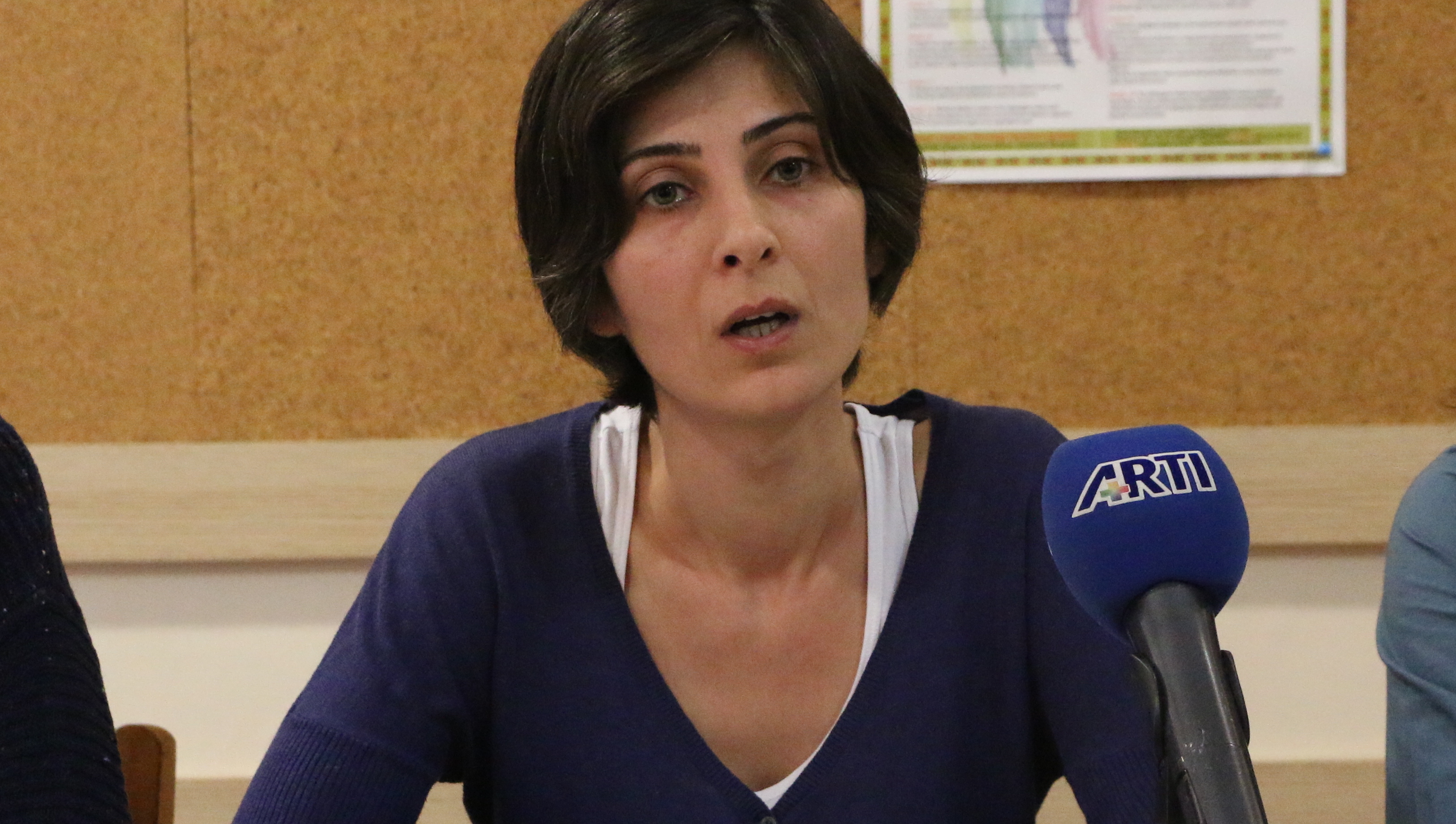Journalists and academics bear the brunt of the massive crackdown on freedom of expression in Turkey. Scores of them are currently subject to criminal investigations or behind bars. This website is dedicated to tracking the legal process against them.


The following questionnaire, conducted by P24 Platform for Independent Journalism, is part of a survey aimed at revealing the conditions faced by journalists in prison in Turkey, either in pretrial detention or under a sentence. In addition to documenting the problems journalists might be facing during their time in prison, this survey is also aimed at helping improve their prison environment.
Hicran Urun filled out the questionnaire during a prison visit in late 2018 by P24’s lawyers.
Name: Hicran Urun
Hicran Urun, an editor for the shuttered pro-Kurdish daily Özgürlükçü Demokrasi, was jailed pending trial on 10 April 2018 by Istanbul’s 3rd Criminal Judgeship of Peace on the charge of “membership in a terrorist group” along with three of her co-workers. An indictment issued by the terrorism and organized crime investigation bureau under the Istanbul Chief Public Prosecutor’s Office accuses 14 employees of Özgürlükçü Demokrasi, including Urun, of “membership in a terrorist group,” “disseminating propaganda for a terrorist group” and “printing terrorist group publications.” Five of the defendants in the case are currently in detention on remand.
Prison: Bakırköy Women’s Prison
Detained since: 10 April 2018
In pre-trial detention or under sentence: in pre-trial detention
1. Are you detained with other inmates or are you in solitary confinement? How many people do you share the prison ward/cell with?
I am detained with 24 other inmates.
2. How many hours a day are you allowed to go out to the courtyard or prison yard?
We can go out on the shared courtyard from 7:00 a.m. until 7:00 p.m.
3. Have you had any problems regarding the food served in prison? Does the food meet your health and/or dietary requirements?
The food we are given is unhealthy. Several times we found bugs in it. Sometimes we are served the same food several days in a row. Whenever we have health problems, securing a visit to the infirmary or a transfer to the hospital is the biggest trouble we face. You are either forced to remain in handcuffs throughout the doctor’s examination or you are not transferred to the hospital at all.
4. Have you had any problems in meeting your day-to-day needs such as heating, warm water for shower/bath, laundry, cleaning, etc.?
We obtain cleaning products and the like from the commissary. We don’t have a major problem other than water shortages.
5. Do you suffer from any chronic illnesses? Do you have to take regular medication? Do you have access to a medical doctor and/or psychiatrist whenever you need? Have you had any difficulty obtaining your prescribed medicines?
When I was first arrested I could not get my digestive and dental medications for two months. I had to file countless petitions before finally getting them.
6. Have you had any problems sending/receiving letters?
The right to communication is one of the most heavily restricted rights here. At times you have to wait for four months before a letter you’ve been sent is delivered to you. Some letters are not delivered at all.
7. Have you faced any limitations concerning books, newspapers or other publications you asked for? How many books are you allowed in your prison ward/cell?
We are each allowed to have 10 books in our unit, but sometimes when [the prison management] deems a newspaper supplement or a certain interview to be “inappropriate,” we are not allowed to get those. (One such example was an interview with Selahattin Demirtaş published in Cumhuriyet daily’s Sunday supplement.)
8. How often can your lawyers or your immediate family visit you? Are other relatives or friends allowed to visit you?
My immediate family and my friends are allowed to visit every week. I haven't had any problems in seeing my lawyer either. However, although the State of Emergency has been lifted, the restriction imposed on the visitation period during SoE is still in place: We are only allowed 35-minute visits.
9. Have you been visited by a member of the parliament? If yes, could you please name those who came to your visit?
No.
10. Have you faced any problems preparing your defense statement? Do you have access to a computer, to the library, and to your case file while working on your defense statement?
I was allowed access to my case file for my defense statement. I did not use any computers or other material in the library while working on my defense statement.
11. Have you been subject to ill-treatment or any physical or verbal harassment? If so, have you filed a complaint, and if yes, what happened following your complaint?
During my admission to the prison I was forced to undergo strip search. Following a lengthy discussion, they agreed not to do it because I rejected it.
12. Have your demands in your petitions been met? Which of your requests have or have not been met?
The response to the petitions I filed concerning my medications during the first two months following my arrest was very late. There has been no response to my petitions concerning my letters that have not been delivered. Due to contaminated tap water in the prison, I suffered otitis and bleeding from my ears. The prison management did not respond to the petitions I filed concerning that problem. No solution has been offered.
13. Please name any other problems/demands/shortcomings not mentioned above.
I demand more solidarity for all jailed journalists.
